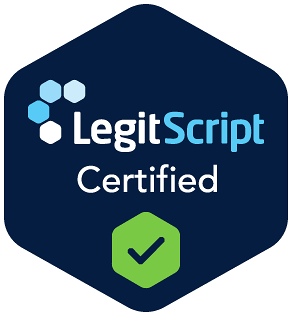Many of the misconceptions about people with addiction come because there is a lack of knowledge or understanding. We hear and say phrases such as, “Just say no.” Or “Don’t fall into peer pressure.” These things are good and important to encourage a lifestyle of drug and alcohol abstinence in young people. However, they could also reinforce the idea that drug or alcohol addiction is a choice. Or at least something that is controllable.
With this in mind, there are plenty of addiction misconceptions about people with substance use disorders that are given to us through cultural consensus or even simply implied through misunderstanding. Here are 5 of them.
4 Misconceptions About People With Drug or Alcohol Addictions
-
Weak Willed
“Why don’t you just stop?”
A person with an addiction has an injured brain. Yes, they might have started drinking or using drugs voluntarily, however, at some point in the process the chemicals of the brain have changed. So it’s not a matter of willpower for a person to stop their addictive behaviors. It is similar to telling someone with a different disease to simply stop having symptoms of their illness. White knuckling it typically just creates an opportunity for relapse. Professional medical and psychiatric recovery help are necessary for a person to finally “just stop.”
-
It’s Only About Drugs or Alcohol
Yes. There are drugs and/or alcohol involved in the addict’s life. However, helping a person find full recovery means helping a person find full healing. A person with a substance use disorder has many psychological and behavioral issues that must be confronted in order to find success in recovery. You change the person. You help them understand where the self-destruction comes from. Where their wounds are. This is why a good detox, such as SoCal Detox in San Clemente, California, will help walk residents through the initial process, and then help guide them to the right recovery program that will address the deeper issues.
-
They are Poor and uneducated
There are many stereotypes or people with substance use disorders. Maybe you have heard a couple of them (or even believe them yourself):
- Addicts are criminals
- Addicts are poor and uneducated
- Addicts have no ambition
- Addicts are bad people
- Addicts are jobless
Addiction does not fit any one stereotype or demographic. Many high functioning alcoholics and drug addicts may actually have great jobs, get their drugs from people wearing suits, not drink or use all day long, be great parents, and so on. The biggest danger with the stereotypes is that they allow a person with an addiction to fool themselves—believing they don’t look like a person with an addiction so they must not have one.
-
Once an Addict Always an Addict
It’s a common misconception in society that if you have been addicted to drugs or alcohol you will always be an addict. Even in some recovery circles, the phrase “once an addict, always an addict,” is helpful for some. The interpretation of this idea is where the misconception comes in. When this phrase is used to help someone avoid relapse, it is doing its job. Because, yes. Unfortunately, relapse is always possible. However, overcoming addiction happens. Recovery happens. With professional treatment and a good program, addiction can be defeated.
The biggest problem with “once an addict always an addict,” is how it affects someone suffering from a substance use disorder. They might hear this phrase and believe there is no reason to even try.
Overcoming Your Own Addiction Misconception
Addiction misconceptions and stereotypes are most dangerous when they keep individuals from finding treatment. The truth is that addiction looks different for every individual, but there is healing. Successful recovery comes not from individual willpower but when individuals have the courage to reach out for help.
An Orange County Drug and Alcohol Detox
SoCal Detox in Orange County, California, is here to help you break the stereotypes and find full recovery. Our facilities and programs are designed to help individuals successfully detox under professional guidance, and then take the next step towards recovery. If you or a loved one are in the place to finally reach out and ask for help, call us today. One of our specialists will make sure you find the right program for your needs: 888-590-0777.






